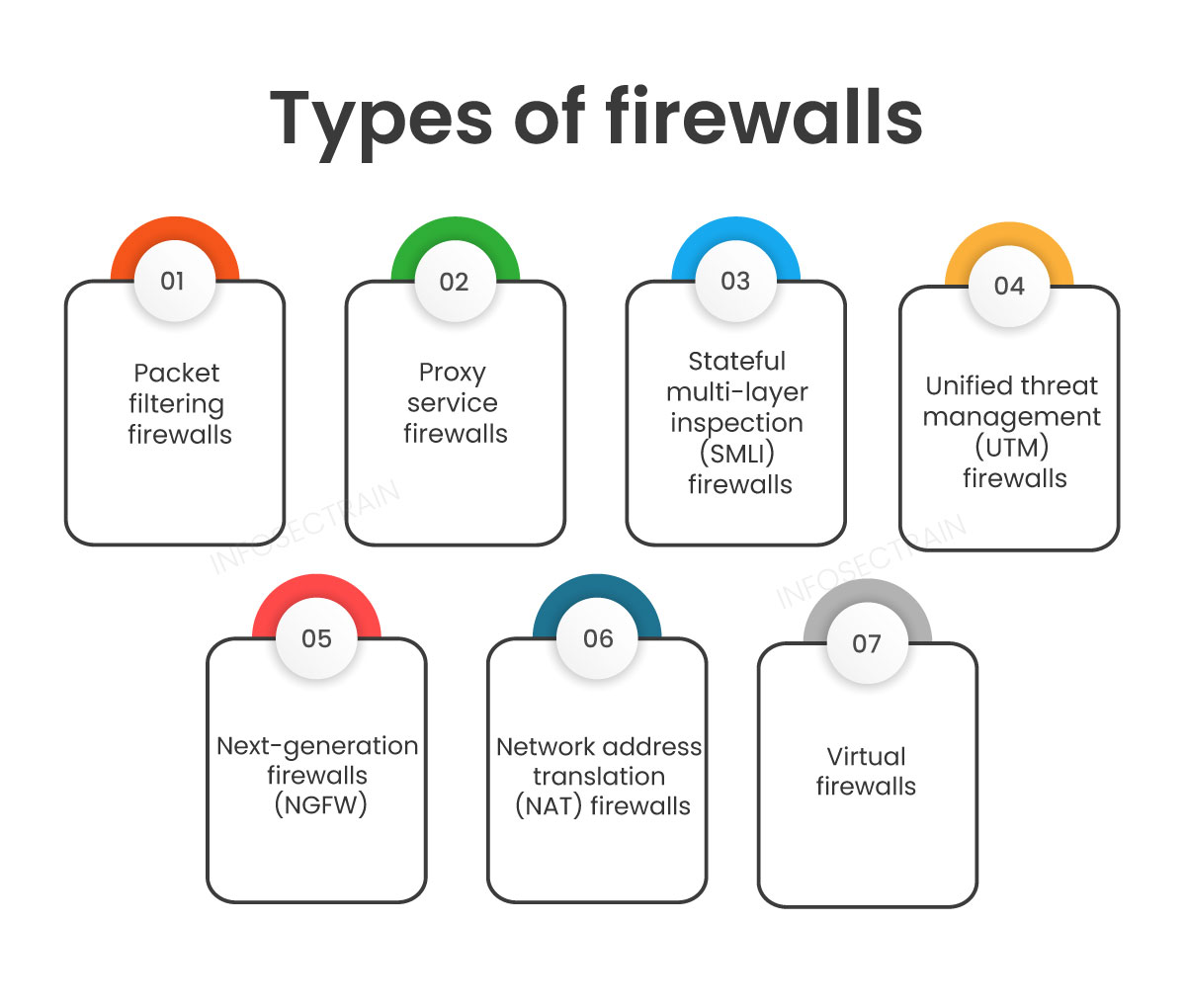Advantages and Disadvantages of Firewalls
These days, most of our work and daily tasks, from schooling to shopping, are conducted online. The internet has made it possible to accomplish tasks that used to take hours with just a few taps on a computer, laptop, or smartphone. It has been demonstrated that internet activity has increased dramatically, and as a result, so have internet-related threats such as hacking, cracking, spamming, etc. To regulate these web activities, firewalls are applied to prevent illegal and unauthorized access to a computer, laptop, smartphone, tablet, etc.

Table of Contents
What is a Firewall?
How Does a Firewall Work?
Types of Firewalls
Advantages of Firewall
Disadvantages of Firewalls
What is a Firewall?
A firewall is a system of security devices (hardware or software) designed to prevent attackers from obtaining unauthorized access to a network system. A firewall also prevents malware from infecting the system by filtering out traffic it considers to be unwanted.
How Does a Firewall Work?
A firewall is like a guard at the entrance. It keeps track of the latest attempt to get into the network system and blocks malicious traffic or sources it does not know. A firewall system operates according to the rules of network traffic. A firewall only permits the incoming connections that it is provisioned to acknowledge. It completes this by enabling or preventing specific data packets based on pre-established network security rules. Firewalls allow only IP addresses from trusted sources. IP addresses are significant since they identify a computer or source, just like the home address identifies where you live.
Types of Firewalls
There are different types of hardware, software, and cloud-based firewalls. There are different firewalls based on how they are built and what they do.

Advantages of Firewall
In this era of the internet, firewalls are considered one of the most significant because of their different salient features. So here are some of the advantages of firewalls.
1. Monitor Network Traffic: A firewall’s primary duty is to monitor the network traffic. When information moves through a network, it occurs in small pieces called “packets.” The firewall examines each of these packets for any potential threats. If the firewall detects them, it will close them down instantly.
2. Protection Against Viruses: As we know, attackers use different types of malicious attacks to target the network system, and malware, trojan, and virus attacks are some of those malicious forms. These viruses, like trojans, sit silently in the system and monitor the information or work we do. So, the firewall is designed and developed to act as a protective wall between the network system and these malicious programs. Firewalls have a security feature that is activated when it comes in contact with such malicious programs.
3. Protection Against Malware: Trojans and other malicious software have become too sophisticated to be conveniently avoided. For this reason, setting up a firewall and taking other precautions against malware is essential.
4. Access Control: A firewall’s access policy can be implemented for particular hosts and services. The attackers exploit several hosts; therefore, preventing such hosts from accessing the system is preferable. This access policy can be enforced if users believe they need protection against these types of unwanted access.
5. Better Privacy: User privacy is one of the primary concerns. Hackers are always on the search for a user’s personally identifiable information by searching through private data. However, using a firewall can block many of a site’s services, like the domain name service and the finger service. So, the hackers have no chance of getting personal information. A firewall can also block the DNS information of the site system. Due to this, the attacker could not see the names and IP addresses.
Disadvantages of Firewalls
Here are some of the disadvantages of firewalls
1. Cost: Undoubtedly, software firewalls are included with the newest and most affordable operating systems, such as Windows 7, Windows 8, Windows 10, and Windows 10.2. A few of the software firewalls include premium antivirus software. In addition, the hardware firewall is considered costly in comparison to others.
2. User Restrictions: Firewalls prevent unauthorized network access to your system without question. This can be advantageous for the average user but can be problematic for large organizations. The firewall’s policies must be stringent to prevent employees from performing specific tasks. However, this strictness can sometimes lead to a significant decline in the company’s overall productivity, potentially prompting employees to resort to backdoor exploits.
3. Performance: Firewalls, especially software-based ones, can limit your system’s overall performance. Factors determining a computer’s overall performance are its processing speed and RAM capacity. When software firewalls operate continuously in the origins, they consume more computing resources and RAM, which can decrease system performance.
4. Complex Operations: Even though firewall maintenance is simplified for small companies, this is only true for some organizations. Big businesses require a separate staff to operate their firewalls, and these individuals ensure that the firewall’s security is sufficient to protect the network from attackers.
5. Limited Protection Against Advanced Threats: Traditional firewalls primarily filter traffic based on ports, protocols, and IP addresses. They may not effectively detect or prevent sophisticated threats like advanced malware, zero-day exploits, or targeted attacks.
Final Words
In network security, the concept of a firewall is relatively broad. If you want to learn more about firewalls, check out InfosecTrain’s Network Security training course.
InfosecTrain is a significant organization that provides training and consulting services for IT security and technology worldwide. We have always given the best quality and success rates, regardless of the need for technical help, certification training, or specialized training.







 1800-843-7890 (India)
1800-843-7890 (India)